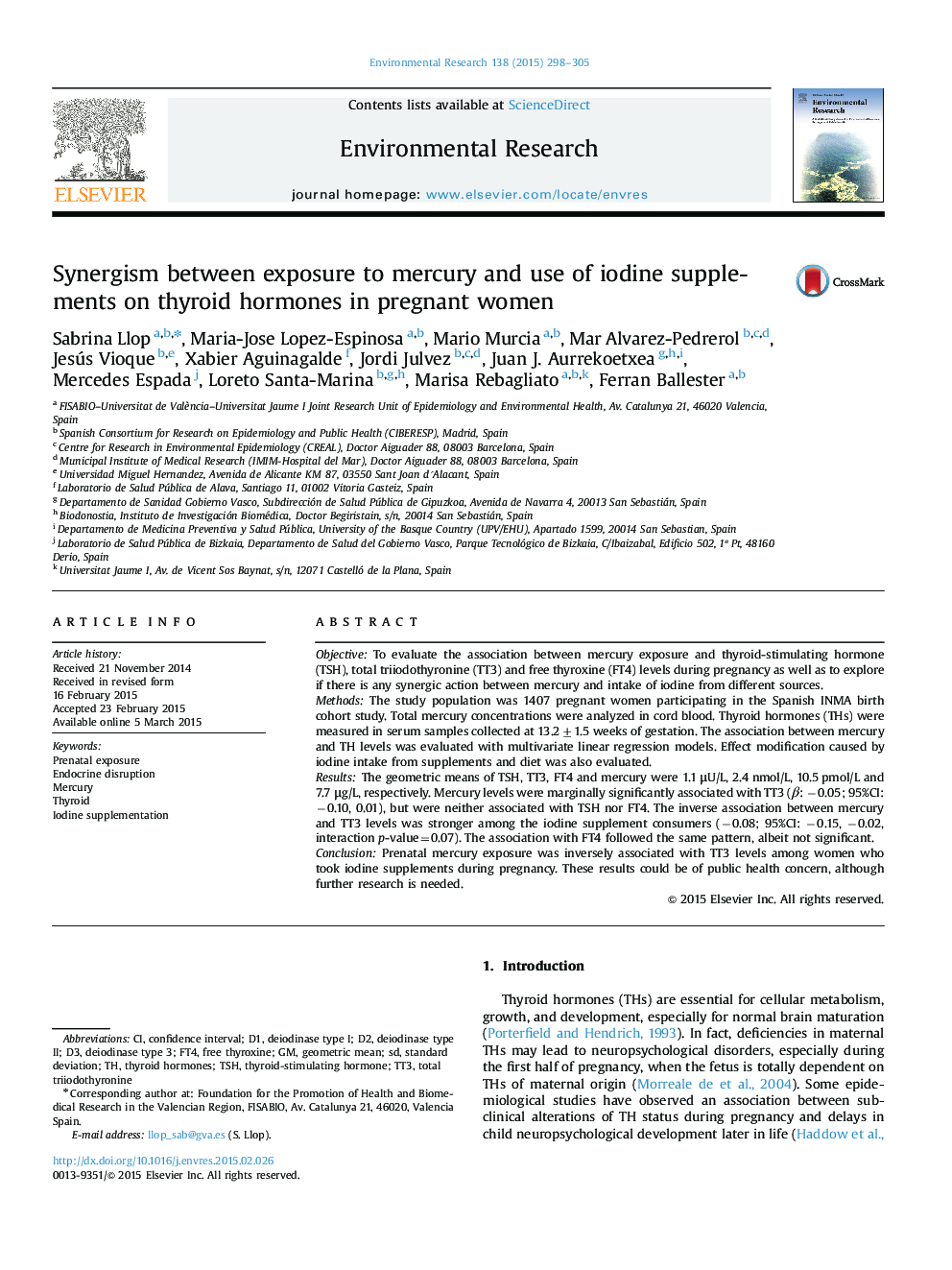| کد مقاله | کد نشریه | سال انتشار | مقاله انگلیسی | نسخه تمام متن |
|---|---|---|---|---|
| 4469773 | 1622563 | 2015 | 8 صفحه PDF | دانلود رایگان |
• We studied the relationship between mercury and thyroid hormones among pregnant.
• Mercury was marginally significantly associated with TT3, but not with TSH or FT4.
• This association was stronger among the iodine supplement.
• These results could be of public health concern, but further research is needed.
ObjectiveTo evaluate the association between mercury exposure and thyroid-stimulating hormone (TSH), total triiodothyronine (TT3) and free thyroxine (FT4) levels during pregnancy as well as to explore if there is any synergic action between mercury and intake of iodine from different sources.MethodsThe study population was 1407 pregnant women participating in the Spanish INMA birth cohort study. Total mercury concentrations were analyzed in cord blood. Thyroid hormones (THs) were measured in serum samples collected at 13.2±1.5 weeks of gestation. The association between mercury and TH levels was evaluated with multivariate linear regression models. Effect modification caused by iodine intake from supplements and diet was also evaluated.ResultsThe geometric means of TSH, TT3, FT4 and mercury were 1.1 μU/L, 2.4 nmol/L, 10.5 pmol/L and 7.7 μg/L, respectively. Mercury levels were marginally significantly associated with TT3 (β: −0.05; 95%CI: −0.10, 0.01), but were neither associated with TSH nor FT4. The inverse association between mercury and TT3 levels was stronger among the iodine supplement consumers (−0.08; 95%CI: −0.15, −0.02, interaction p-value=0.07). The association with FT4 followed the same pattern, albeit not significant.ConclusionPrenatal mercury exposure was inversely associated with TT3 levels among women who took iodine supplements during pregnancy. These results could be of public health concern, although further research is needed.
Journal: Environmental Research - Volume 138, April 2015, Pages 298–305
